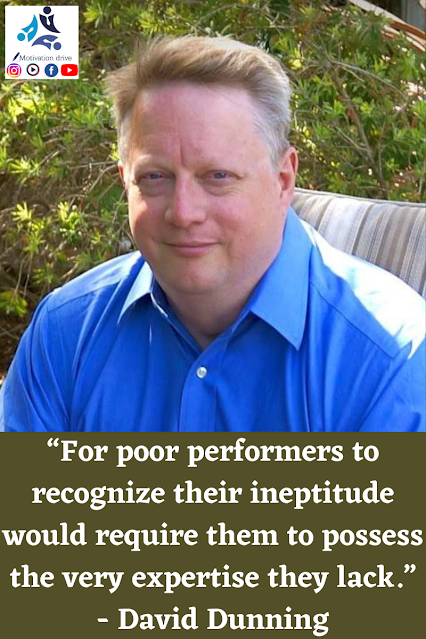Introduction In many parts of the world, discipline is often associated with pressure, control, and constant self-motivation. It is treated like a battle—against laziness, distraction, or lack of willpower. The common belief is that discipline requires pushing harder, forcing habits, and constantly correcting oneself. Japanese culture presents a very different perspective. Here, discipline is not experienced as punishment or pressure. It is expressed as respect—for oneself, for others, and for the work being done. It is not loud or rigid. Instead, it is calm, consistent, and deeply integrated into daily life. What makes Japanese discipline powerful is that it does not rely on motivation. It relies on values. These values quietly shape behavior, habits, and mindset over time. Below are five timeless Japanese principles that redefine discipline and show how extraordinary character is built without force. What Japanese Culture Taught Me About Discipline 1. WA (和) — Harmon...
Introduction
In the realm of human cognition, our ability to assess our own competence is often biased and prone to misjudgment. The Dunning-Kruger Effect, a psychological phenomenon identified by social psychologists David Dunning and Justin Kruger in 1999, reveals how individuals with low ability in a particular domain tend to overestimate their competence, while those with high ability often underestimate theirs. This article explores the intricacies of the Dunning-Kruger Effect, its underlying mechanisms, and the implications it holds for personal growth, decision-making, and interpersonal relationships.Understanding the Dunning-Kruger Effect
The Dunning-Kruger Effect stems from a cognitive bias that impairs our self-awareness and skews our self-assessment of competence. It manifests as a tendency for individuals of low ability to hold overly optimistic views of their own skills and knowledge in a given domain, leading them to believe they are more competent than they actually are. Conversely, individuals with high competence may underestimate their abilities, assuming that others possess a similar level of proficiency.The phenomenon arises due to a two-fold cognitive distortion: lack of metacognitive skills and a limited understanding of the domain itself. Those with lower abilities may lack the knowledge and expertise necessary to recognize their own deficiencies, hindering their ability to accurately assess their performance. Additionally, their limited understanding of the domain prevents them from recognizing the complexities and nuances involved, leading to an inflated sense of competence.
Implications and Challenges
The Dunning-Kruger Effect has significant implications across various aspects of life:1. Decision-Making: Individuals influenced by the Dunning-Kruger Effect may make poor decisions due to their unwarranted confidence. They may overlook critical information, dismiss expert advice, and underestimate the risks involved, leading to suboptimal outcomes.
2. Skill Development: The overestimation of competence can hinder personal growth and skill development. Those afflicted by the Dunning-Kruger Effect may perceive themselves as already highly-skilled, reducing their motivation to improve or seek further knowledge and feedback.
3. Interpersonal Relationships: Misjudging one’s competence can strain interpersonal relationships. Individuals with inflated self-perceptions may disregard the perspectives and expertise of others, leading to conflicts, poor teamwork, and an overall breakdown in collaboration.
1. Seek Objective Feedback: Actively solicit feedback from knowledgeable and unbiased sources to gain a realistic perspective on your abilities. External evaluations can provide valuable insights and highlight areas for improvement.
2. Cultivate Humility: Recognize that expertise is a lifelong journey and embrace a mindset of continuous learning. Emphasize the value of acquiring new knowledge and skills, and remain open to feedback and constructive criticism.
3. Engage in Self-Evaluation: Develop metacognitive skills by critically evaluating your own performance. Regularly assess your strengths and weaknesses, and compare your self-perception with objective measures to gain a more accurate understanding of your competence.
4. Embrace Expertise: Acknowledge and appreciate the expertise of others. Collaborate with knowledgeable individuals, seek their advice, and recognize that their insights can contribute to better decision-making and personal growth.
5. Foster a Culture of Feedback: Encourage a feedback-rich environment in professional and personal settings. Promote open communication, constructive criticism, and peer evaluation, creating opportunities for individuals to receive honest assessments of their abilities.
3. Interpersonal Relationships: Misjudging one’s competence can strain interpersonal relationships. Individuals with inflated self-perceptions may disregard the perspectives and expertise of others, leading to conflicts, poor teamwork, and an overall breakdown in collaboration.
Overcoming the Dunning-Kruger Effect
Awareness and self-reflection are crucial in mitigating the impact of the Dunning-Kruger Effect. Here are some strategies to help individuals overcome this cognitive bias:1. Seek Objective Feedback: Actively solicit feedback from knowledgeable and unbiased sources to gain a realistic perspective on your abilities. External evaluations can provide valuable insights and highlight areas for improvement.
2. Cultivate Humility: Recognize that expertise is a lifelong journey and embrace a mindset of continuous learning. Emphasize the value of acquiring new knowledge and skills, and remain open to feedback and constructive criticism.
3. Engage in Self-Evaluation: Develop metacognitive skills by critically evaluating your own performance. Regularly assess your strengths and weaknesses, and compare your self-perception with objective measures to gain a more accurate understanding of your competence.
4. Embrace Expertise: Acknowledge and appreciate the expertise of others. Collaborate with knowledgeable individuals, seek their advice, and recognize that their insights can contribute to better decision-making and personal growth.
5. Foster a Culture of Feedback: Encourage a feedback-rich environment in professional and personal settings. Promote open communication, constructive criticism, and peer evaluation, creating opportunities for individuals to receive honest assessments of their abilities.


Comments
Post a Comment
Please do not add any spam link in the comment box